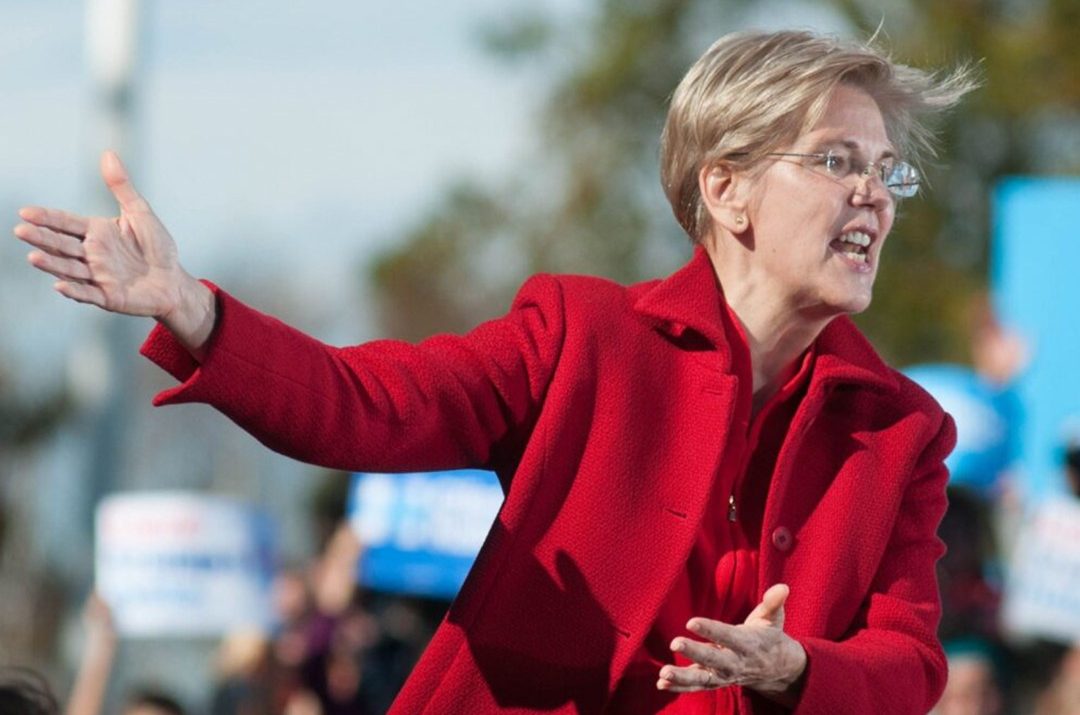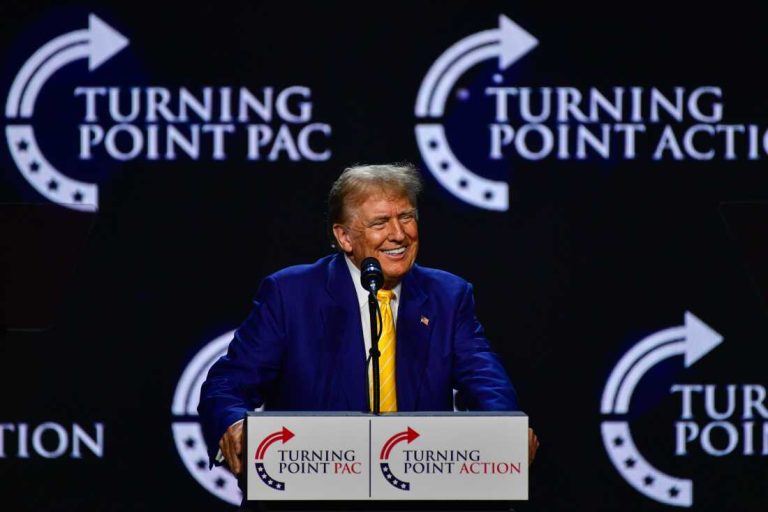The Economy’s Surging—But Not Everyone’s Happy About It
While major financial indicators continue to flash green, some political voices are doubling down on economic doom. This disconnect was on full display during a recent exchange on CNBC, where skepticism about Senator Elizabeth Warren’s gloomy take on the Trump economy was met with sharp pushback.
As the U.S. economy records stronger-than-expected growth, prominent media figures are beginning to question the political narrative from the left—especially when it seems increasingly out of step with market reality.
The Exchange That Sparked It
On CNBC’s Squawk Box, longtime hosts Rick Santelli and Joe Kernen addressed the recent surge in GDP and the continuing strength of major stock indices. During their discussion, both men directly challenged Senator Warren’s repeated claims that the economy is “on the brink” due to inflation and trade policy.
Kernen called out the contradiction. “Senator Elizabeth Warren will come on and say, ‘Inflation is out of control,’” he said. “But we’re sitting here with inflation under 3 percent and the markets hitting record highs.”
A Political Divide Over Data
Warren has consistently criticized Trump’s economic policy, especially tariffs and energy deregulation. She argues that these approaches may yield short-term benefits, but pose longer-term structural risks to the labor market and global supply chains.
But Santelli wasn’t buying it. “Don’t pick a Congress member to be your money manager,” he quipped—suggesting that elected officials may not be the best interpreters of economic trends.
The Numbers Tell a Different Story
According to the U.S. Bureau of Economic Analysis, second-quarter GDP grew by roughly 3 percent—exceeding most forecasts. Consumer spending remains strong, inflation is easing, and private sector job growth is outpacing projections.
Additionally, data from the Bureau of Labor Statistics showed that government payrolls have declined, suggesting a more efficient federal workforce and lower overall government spending.
Meanwhile, Wall Street continues its winning streak. The S&P 500 and Nasdaq both posted strong quarterly gains, buoyed by solid earnings and increased exports—especially in energy and manufacturing.
Warren’s Continued Warnings
Despite the numbers, Warren has not changed her tone. She maintains that the administration’s trade policies, especially the continuation of tariffs, will eventually harm U.S. workers and destabilize supply chains. She has also cited fears of inflation returning, should global commodity prices rise or the dollar weaken.
Her concerns have found support among some Democratic colleagues, but they seem to be losing traction outside of political circles. Financial analysts increasingly view her assessments as overly pessimistic—or even disconnected from reality.
Media Pushback Begins to Build
The Squawk Box segment is one of several recent moments where financial media has openly challenged political messaging about the economy. While these outlets don’t typically take strong political stances, their coverage increasingly reflects frustration with what they see as unfounded negativity.
For Trump supporters, the pushback is validation: a rare moment when mainstream voices admit that the numbers don’t lie—even if the headlines try to.
A Broader Pattern Emerging
This isn’t the first time Warren has clashed with the markets. During previous administrations, she has criticized both Democratic and Republican policies when they favored Wall Street or multinational corporations. But the context is different now: Trump’s economic numbers are strong, and voters are noticing.
As the 2026 midterms draw closer, economic messaging will be critical. If the data continues to trend positively, voices like Warren’s may struggle to gain traction—especially if voters feel the disconnect between what they hear on TV and what they experience at the gas pump or grocery store.
Bottom Line
The tension between economic performance and political messaging is growing. And in this case, CNBC’s not-so-subtle rebuke of Senator Warren’s economic warnings may be a sign that even the financial press is getting tired of the panic.
The economy may not be perfect, but by most measures, it’s outperforming expectations—and the panic, it seems, is not spreading.

Emily Johnson is a critically acclaimed essayist and novelist known for her thought-provoking works centered on feminism, women’s rights, and modern relationships. Born and raised in Portland, Oregon, Emily grew up with a deep love of books, often spending her afternoons at her local library. She went on to study literature and gender studies at UCLA, where she became deeply involved in activism and began publishing essays in campus journals. Her debut essay collection, Voices Unbound, struck a chord with readers nationwide for its fearless exploration of gender dynamics, identity, and the challenges faced by women in contemporary society. Emily later transitioned into fiction, writing novels that balance compelling storytelling with social commentary. Her protagonists are often strong, multidimensional women navigating love, ambition, and the struggles of everyday life, making her a favorite among readers who crave authentic, relatable narratives. Critics praise her ability to merge personal intimacy with universal themes. Off the page, Emily is an advocate for women in publishing, leading workshops that encourage young female writers to embrace their voices. She lives in Seattle with her partner and two rescue cats, where she continues to write, teach, and inspire a new generation of storytellers.









